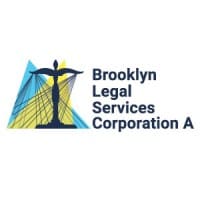Description:
Job Posting:The primary job responsibilities of the Supervising Attorney are as follows:
- Directly supervise between one and five staff attorneys in housing rights litigation, including: group tenant association representation, HP proceedings, 7A proceedings, eviction defense, agency filings, and matters in state or federal court relating to repairs, rent regulation, and fair housing.
- Directly supervise staff attorneys litigating fair housing claims before federal, state and city courts, as well as administrative agencies.
- Maintain a personal caseload of (generally complex) litigation matters.
- Possess, develop, and maintain expertise in relevant areas of law and policy in order to provide the best advice possible to attorneys, staff, and clients
- Co-counsel, as appropriate, matters with staff attorneys.
- Conduct weekly check-ins with supervisees to review cases, update case management systems, provide guidance on litigation strategy, ensure compliance with organizational policies, review drafts, provide feedback, provide guidance on professional development.
- Ensure that direct supervisees conduct their representation competently, ethically, and in compliance with CoRe's policies.
- Enforce CoRe policies and provide coaching and accountability for direct supervisees
- With the Director of Litigation and other supervising attorneys, ensure that the litigation team meets and exceeds its obligations for grant deliverables, compliance requirements, organizational goals and performance indicators.
- With the Director of Litigation and other supervising attorneys, assign new tenant association matters to staff attorneys and assist with managing the caseloads of direct supervisees.
- With the Director of Litigation and other supervising attorneys, assist with the training of new and current staff attorneys as necessary.
- With the Director of Litigation and other supervising attorneys, develop and execute strategies to meet organizational goals and advance housing rights and justice
- Work and liaise with community partners (community based organizations, elected officials, coalitions) to achieve strategic goals for housing rights such as improved laws and processes, identifying and assisting distressed communities, developing collaborative networks for community empowerment, etc. .
- Develop new community partnerships as necessary to expand CORE's housing work.
- Provide programming and lead community education events on housing issues.
- Participate in management meetings and assist in other managerial or administrative responsibilities as appropriate.
- Any other related duties as required
- In addition to supervisory responsibilities, Supervisor Attorneys are also expected to comply with standards for Staff Attorneys and Law Graduates.
- Direct Representation of Clients in Legal and Administrative Proceedings
- Maintain a caseload of individual and group litigation matters before judicial and administrative forums in the State of New York. The majority of CoRe's litigation is before the Housing Part of the New York City Civil Court. However, staff attorneys may have occasion to represent clients before the Supreme Court of the State of New York; various appellate courts of the New York State court system; the Federal District Courts for the Eastern and Southern Districts of New York; the New York State Division of Housing and Community Renewal; the New York City Human Rights Commission; the New York State Division of Human Rights; and other forums as appropriate.
- The attorney shall provide quality representation in all matters in which they appear and shall conduct themselves in accordance with applicable legal and professional standards and practices.
- All attorneys on staff are encouraged to proactively consider all legal proceedings to improve clients' prospects of obtaining the best possible outcomes.
- Conduct client meetings and tenant association meetings in the homes of the clients during the most accommodating times for the clients including evening meetings.
- Advice and Counsel for Clients Outside of Court
- Provide timely legal and practical advice to clients regarding their legal rights and the most effective strategies by which those rights can be vindicated. All brief advice calls should be returned within 5 business days.
- The attorneys are required to staff clinics, provide Know Your Rights presentations, and represent the organization in coalitions for the purpose of advocating for tenants' rights and the communities whom we serve.
- Direct actions like rent strikes, letter writing campaigns, media advocacy, and outreach to agencies or elected officials.
- Meet regularly with their clients, including through regular tenant association meetings with group clients. These meetings should be scheduled so as to best accommodate the needs of the clients.
- Cooperation with Organizers During Legal Representation
- Collaborate closely with the organizers assigned to their cases, ensuring that both organizer and attorney are timely informed about new facts, developments in court, or other issues related to the representation.
- Case Management and Other Record Keeping
- Keep up-to-date records on LegalServer and Google Drive services for the purposes of keeping up-to-date records on client communications, factual developments, and legal proceedings.
- Create cases on Legal Services for every brief advice and full representation client with whom we work, and create additional cases for each additional legal filing on behalf of a client.
- Record daily the hours they worked, took paid time off, etc., in LegalServer.
- Record notes in LegalServer reflecting communications with clients, opposing counsel, court personnel, witnesses, etc., as well as other developments in cases.
- Scan physical documents in legible form, and both those scanned documents and other digital documents should be retained either in LegalServer or in Google Drive shared folders, such that they can be reliably found and accessed by supervisors or other staff that may need to work on the case in question. At a minimum, a case's digitized and accessible documents should include all documents filed with the relevant court or agency, any orders from such court or agency, and any documents which may be necessary to submit to the tribunal in the future (e.g., correspondence with opposing counsel or party, other evidence).
- Caseload Standards
- In general, an attorney should expect to represent 10 tenant associations at a time. Where tenant associations are small, assisted by effective organizing, and relatively calm in terms of litigation activity, an attorney may be able to handle 12-15 or more of such matters. The attorney may also be required to handle individual eviction proceedings and agency filings.
- Supervision of Interns and Externs
- Participate in our internship programs through supe
- Supervise interns and participate in the work of the Internship Committee.
- Staff attorneys supervising interns are expected to: meet with their interns regularly, thoughtfully identify and assign projects to them based upon the needs of the office and the interns' expressed interests and capacities, provide meaningful feedback regarding work product, and generally involve them in our work through invitations to tenant association meetings, coalition meetings, court appearances, and other events.
- Non-Litigation Work for Advocacy Coalitions
- Attorneys are expected to participate in at least one coalition.
- Community Education Work
- Attorneys are expected to provide educational know your rights workshops, staff clinics, and participate in community and outreach events.
- Applications will be considered on a rolling basis.





